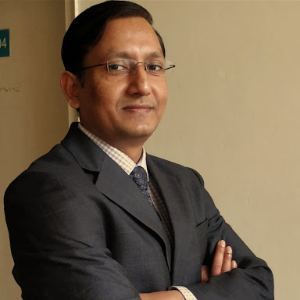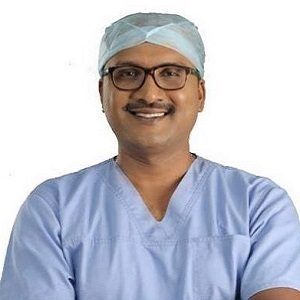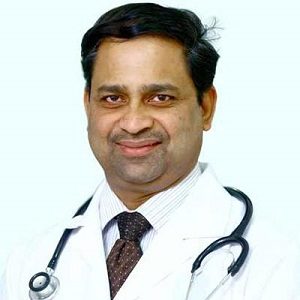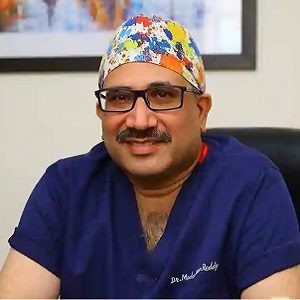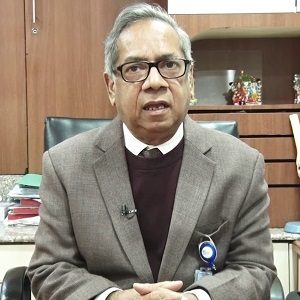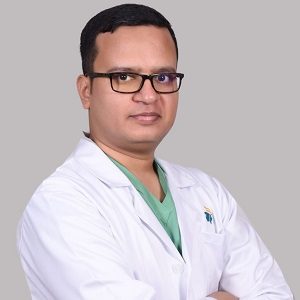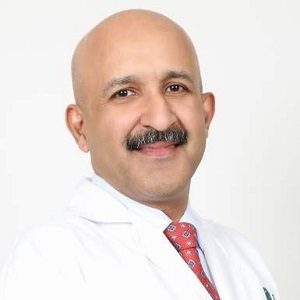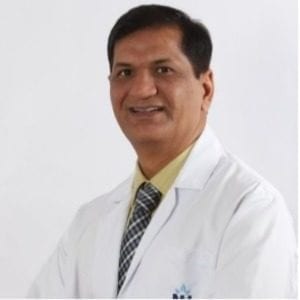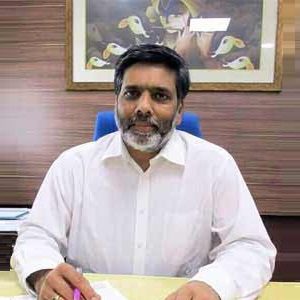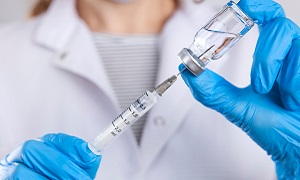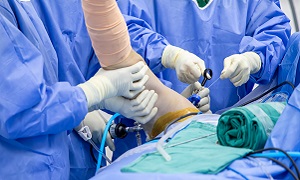Best Doctors in India for Frozen Shoulder Treatment
- Orthopedic & Spine Surgeon, New Delhi, India
- Over 14 years’ experience
Profile Highlights:
- Dr. Om Prakash Gupta is a reputed Spine Surgeon in India.
- He is currently functioning as a Consultant – Orthopedics & Spine at Max Smart Super Speciality Hospital, New Delhi
- He has over 14 years of experience.
- Orthopedic Surgeon, Chennai, India
- Over 21 years’ experience
Profile Highlights:
- Dr. A Navaladi Shankar is a well-known spine surgeon and orthopedist in Chennai with 21+ years of experience.
- He completed an MBBS from Al-Ameen Medical College, MNAMS from the National Board of Education, and a Diploma from Sri Ramachandra Medical College and Research Institute.
- Dr. Shankar holds expertise in Laminectomy, Lower Back Pain and Neck Pain Treatment, Arthritis Management, and Trauma Surgery.
- Orthopaedic Surgeon, Chennai, India
- Over 22 years’ experience
Profile Highlights:
- Dr. Kornad P Kosygan is one of the few Orthopedic surgeons in India with a double FRCS degree.
- He has been successful in the diagnosis and treatment of severe Orthopedic problems throughout his career.
- Dr. Kornad is invited as an exclusive Orthopedics Specialist from over six countries in the Asian and European subcontinent.
- Dr. Kosygan has sought extensive training and exposure in the department of Orthopaedics.
- Orthopaedic Surgeon, Chennai, India
- Over 25 years’ experience
Profile Highlights:
- Dr. Madan Mohan Reddy is one of the most acclaimed Orthopedic Surgeons in India with tons of experience and knowledge that he gained over the course of years.
- He has attended several courses across the world, in countries like Switzerland, Germany, Australia, and Italy.
- Orthopedic Surgeon, New Delhi, India
- Over 42 years’ experience
Profile Highlights:
- As one of the most experienced orthopedic surgeons in Delhi, Dr. Chander Shekhar has been practicing for 42 years. He is associated with Indraprastha Apollo Hospital as a consultant.
- Dr. Chander Shekhar is interested in Knee and Hip joint replacement and revision.
- He honed his expertise by completing a fellowship in shoulder and knee arthroscopy in the United States. Besides replacement & revision surgery, he has expertise in Birmingham Hip Resurfacing, BHR with stem, and Minimally Invasive Surgery.
- Orthopedic Surgeon & Spine Surgeon, New Delhi, India
- Over 18 years’ experience
Profile Highlights:
- Dr. Amit Kumar Agarwal is a Delhi-based orthopedic, joint replacement, and spine surgeon consultant who has been assuring joint and spine health for about 18 years.
- Dr. Agarwal has garnered numerous accolades for his work in treating Joints and Musculoskeletal Disorders, pain management, sports injury, and articular degeneration during his career.
- Orthopedic Surgeon, New Delhi, India
- Over 22 years’ experience
Profile Highlights:
- Dr. Vibhu Bahl is one of the finest Orthopedist and Joint Replacement Surgeon in India. He has experience of over 22 years in this field.
- Dr. Bahl has successfully performed multiple complex and primary total knee and hip replacements over his career. Besides these, he specializes in computer-assisted total knee replacements. Patients seeking Arthroscopy for shoulder dislocation, degeneration, and repair must consult him.
- Dr. Bahl participated as a Faculty in many Arthroscopy conferences.
- He is passionate about research and has a long list of publications in prestigious national and international journals.
- Orthopedist, New Delhi, India
- Over 20 years’ experience
Profile Highlights:
- Dr. Havind Tandon is one of the best Orthopedists in Delhi, having nearly two decades of experience. He practices as a senior consultant at Indraprastha Apollo Hospital.
- Many patients who need a knee replacement, repair, or osteotomy have benefitted from his enthusiasm and skill in the field.
- Dr. Havind Tandon worked with Jhonson & Jhonson as a Facilitator for the National Joint Replacement Program.
- Pain management counseling, Joint Replacement Surgery, Spinal Therapy, reverse shoulder replacement, neuropathy assessment, foot drop, treatment of complex fractures, and Adult Joint Reconstruction are just a few of the vital services provided by Dr. Havind Tandon.
- Dr. Tandon was also recognized for his work in the field of research.
- Orthopedic and Spine Surgeon, Gurugram, India
- Over 25 years’ experience
Profile Highlights:
- With over 25 years of experience, Dr. Rajesh Kumar Verma can be generally considered a boon for people suffering from complex, bone, joint, or spine disorders.
- Currently known as one of India’s leading spine experts in India, Dr. Rajesh Kumar Verma performs as many as 50 surgeries in a month. The types of surgeries he performs include all types of spine surgeries, joint replacements, as well as complex trauma surgeries.
- Orthopedic Surgeon, Chennai, India
- Over 25 years’ experience
Profile Highlights:
- Dr. Krishnamurthy K provides consultation at the Apollo hospitals of Chennai.
- He has also worked as a senior registrar and assistant surgeon earlier and has sound knowledge of his field.
- One can reach Dr. Krishnamurthy K for treatment of fractures, joints, shoulders, knees, hip replacement, etc.
Best Hospitals in India for Frozen Shoulder Treatment
Fortis Hospital, Shalimar Bagh
- City: New Delhi, India
Hospital Highlights:
- Fortis Hospital in Shalimar Bagh is a multi-super specialty hospital that strives to provide world-class patient care by leaving no stone unturned.
- Fortis, Shalimar Bagh, with 262 beds and a 7.34-acre footprint, provides the best level of medical care through its team of doctors, nurses, technicians, and management professionals.
Reliance Hospital, Mumbai
- City: Mumbai, India
Hospital Highlights:
- Reliance Hospital is one of the best super-specialty care hospitals in Navi Mumbai.
- The main purpose of this hospital is to become a trustworthy place for the best health and hope for society. The hospital is well connected to the suburbs of Mumbai and Navi Mumbai.
- The hospital has various specialty departments, viz., Accident & Emergency, Anesthesiology, Dental Services, Dermatology, Diabetology, Dietetics Nutrition, Endocrinology, ENT, Gastroenterology, General Surgery, Gynaecology And Obstetrics, Hepato Pancreato Biliary Surgery, Infectious Disease, Internal Medicine, Interventional Radiology, Laboratory Medicine, Minimal Access Laparoscopic Surgery, Nephrology, Neurosciences, Opthalmology, Orthopaedics, Paediatrics, Pain Management Palliative Care, Physical Medicine Rehabilitation, Plastic And Reconstructive Surgery, Psychiatry, Pulmonary Medicine, Radiology, Rheumatology, Transplant, Urology Andrology, Vascular Surgery
Lilavati Hospital & Research Centre, Mumbai
- City: Mumbai, India
Hospital Highlights:
- Lilavati Hospital & Research Centre is India’s premier multi-speciality tertiary care hospital and has been recognised as a global medical excellence centre.
- Lilavati Hospital & Research Centre has built an unrivalled level of trust with its patients over the years, thanks to a solid foundation that comprises cutting-edge facilities, the best medical competence, research, education, and charity endeavours.
- The hospital is quite proud of the fact that it now serves patients from all kinds of backgrounds, not just from the United States but from all around the world.
- The hospital has a total of 323 beds, one of the largest Intensive Care Units (ICUs), 12 Operation Theatres with modern amenities, over 300 consultants, and almost 1,800 personnel.
Venkateshwar Hospital, Dwarka, New Delhi
- City: New Delhi, India
Hospital Highlights:
- State-of-the-art technology and devoted healthcare professionals have been brought together under one roof at Venkateshwar Hospital to provide genuine medical care. The hospital’s professionals work together as a team to deliver the best possible treatment to their patients, using the most sophisticated equipment and information technology.
- Venkateshwar Hospital’s mission is to attain global excellence in healthcare by employing evidence-based, ethical clinical practices and cutting-edge technology by a team of highly skilled experts.
MGM Healthcare, Chennai
- City: Chennai, India
Hospital Highlights:
- Located in Chennai, India, MGM Healthcare is a top multispecialty hospital that provides all medical services under one roof.
- Since its founding in 2019, MGM Healthcare has quickly become a leading national referral centre, creating several innovative flagship initiatives.
- MGM Healthcare combines next-generation medical and digital technologies to provide better patient results.
- With 12 centres of excellence, more than 400 inpatient beds, 100 intensive care unit beds, and 24/7 emergency care, MGM Healthcare leaves no chance in redefining the patient experience in Chennai.
- MGM Healthcare boasts 250+ expert doctors across 30+ departments, including Cardiology, Pulmonology, Neurology, Obstetrics & Gynaecology, and more.
- They house 12 specialized Centres of Excellence, including Neurosciences, Orthopaedics, and Multi-Organ Transplantation.
- Their team of doctors, nurses, and paramedics works together to give every patient individualized treatment.
Frozen Shoulder
Frozen shoulder, also known as adhesive capsulitis, is a shoulder condition that causes pain in your shoulder as well as limits its range of motion. When the tissues in your shoulder joint become tighter and thicker, it can lead to the development of scar tissue. Therefore, your shoulder joint doesn’t get enough space for proper rotation. This condition generally occurs between the ages of 40 and 60.
Symptoms
If your shoulder begins to hurt, you can become aware of a frozen shoulder. You are forced to limit your movement because of the pain. As you move the shoulder less and less, the stiffness increases, and within some time, you find out that you are no longer able to move your shoulder like you once did. When this problem becomes severe, you can also have problems performing everyday tasks that involve shoulder movement.
Causes & risk factors
The bones, ligaments and tendons making up the shoulder joint are encased in a capsule of connective tissue. When this capsule thickens and tightens around the shoulder joint, the movement gets restricted.
Though doctors aren’t entirely sure which this occurs, the condition is more seen among people who have diabetes, or those who recently had to immobilize their shoulder for a long time, such as after a surgery, or an arm fracture.
There are certain risk factors that can increase your risk of developing a frozen shoulder.
- People who are above the age of 40, especially women, are generally more likely to have this condition.
- People suffering from prolonged immobility or reduced mobility of the shoulder are also at a high risk of having this condition. Immobility can be the result of several factors, such as broken arm, stroke, rotator cuff injury, or recovery from surgery.
- People having certain diseases including diabetes, tuberculosis, cardiovascular disease, overactive thyroid, an underactive thyroid, and Parkinson’s disease are also more likely to develop this condition.
Diagnosis
During the physical exam, first, your doctor might ask you to move in certain ways in order to check your pain and evaluate your range of motion. Your doctor is next likely going to ask you to relax your muscle, while he/she moves your arm.
Sometimes, your doctor might also inject your shoulder with a numbing medication, so that he/she can determine your passive and active range of motion.
Frozen shoulder can also be diagnosed with signs and symptoms alone. However, your doctor might suggest imaging tests, such as MRI or X-rays, to rule out any other problems.
Treatment options
Most of the treatments for frozen shoulder involves controlling the pain and preserving as much range of motion as possible.
Therapy
Medications
Your doctor might also recommend you over-the-counter pain relievers to deal with the pain and inflammation of the frozen shoulder. Depending on your shoulder, yo ur doctor might also sometimes recommend pain-relieving and anti-inflammatory drugs.
Although most frozen shoulders get better within 12-18 months on their own, in cases where there are persistent symptoms, your doctor might suggest:
Steroid injections
Shoulder manipulation
In this procedure, you are first given a general anesthetic, so that you are unconscious and feel no pain. Then your doctor moves your shoulder joint in various directions, in order to loosen the tightened tissue.
Joint distension
Injecting sterile water into the joint capsule might help to stretch the tissue and also make it easier to move the joint.
Surgery
Surgery for frozen shoulder is performed quite rarely, but if nothing else is helping, then your doctor might recommend surgery for removing scar tissue and adhesions from inside your shoulder joint. Generally, this surgery is performed with lighted, and tubular instruments which are inserted through small incisions around your joint.
Acupuncture
Alternative medicine such as acupuncture is also known to help with this condition. In this method, fine needles are inserted in your skin at specific points, which remain in place for between 15 to 40 minutes. They may be moved or manipulated during this time. Most acupuncture treatments are generally painless.
Prevention
Early treatments generally keep the condition from getting worse. If you are having diabetes, then managing it properly can help you reduce the risk for a frozen shoulder.

